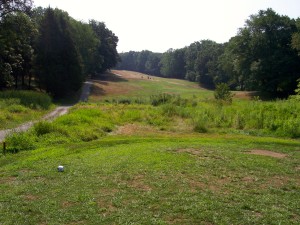It’s no secret some golfers lie about their handicap. But can the handicap system itself be a bit deceiving?
I keep my own handicap – it’s not that hard, you just have to play at least five rounds of golf and then understand how to calculate it (more about that later).
But what if you play all your rounds at the same course? I’ve played many rounds in charity tournaments with guys who claim a handicap far better than the skill they displayed out on the links.
Do they lie? No their handicap does.
Invariably, these guys are members of a private club and all the scores they use to calculate their handicap have been calculated from that one course.
Sorry gents, your handicap is biased. I play a different course nearly every time. But if I played the same 18 holes day in and day out, for sure I would learn all the nooks and crannies, the dos and don’ts of that course. My scores overtime would get exponentially better.
Better scores translate to a lower handicap, which leads to bragging rights among the foursome. But go to a new course, and suddenly your 10 handicap looks more like a 15. What happened?
Golf happened! No two golf courses are alike. And that fact is perhaps among the most unique and defining features of this game – that to truly test your metal, you must play all that golf has to offer – not just the same tract of turf over and over again. But by only playing the same course, you’re doing your handicap (and yourself) a disservice.
Another wee issue I have with the handicap system is this whole five rounds thing. Statistically, I would think the more rounds you include, the more accurate your handicap. But there are many who say all you need is five.
Personally, I think the 5-round rule is so people can obtain a handicap faster. But to me, five rounds just isn’t enough – so I calculate my handicap from my previous 20 rounds. In case you didn’t know the formula for a handicap, here it is:
1. Play 20 rounds of 18-hole golf.
2. For each round, use this formula to calculate a handicap differential: (Your Score – The Course Rating) x 113 / The Slope Rating
3. Take the 10 best differentials and average them.
4. Multiply that average by 0.96.
Presto – you have a handicap. Can I poke holes in this formula? Sure – for example, who decided 113 was the “standard” slope rating and what was their logic? And why 96%? Are we assuming a 4% margin of error or something?
But despite these quasi-questionable values in the formula, nothing will skew the accuracy of a handicap like having your 20 scores coming all from one course.
I enjoy calculating my handicap every year and I feel it’s a pretty accurate reflection of my skill level. I just don’t think everyone can say the same thing about their handicap.


